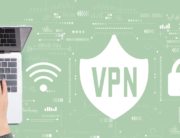Home / Handy Tips /
 Scams and other digital threats have come a long way since the email spam of the late 90s and early 2000s, and malicious actors are employing more sophisticated tactics than ever before to harvest personal information and turn it for a profit.
Scams and other digital threats have come a long way since the email spam of the late 90s and early 2000s, and malicious actors are employing more sophisticated tactics than ever before to harvest personal information and turn it for a profit.
Facebook, with its more than 2.37 billion users worldwide, is one of the most profitable hunting grounds for cybercriminals. Keep yourself and your family safe by learning the tell-tale signs of the following Facebook scams.
Four Facebook scams you need to know about
1. Facebook Phishing
What – Phishing is the act of impersonating a legitimate service or organisation to trick users into divulging their login credentials or other personal data.
Facebook phishing is no different to any other kind and typically takes place over email. A seemingly authentic email prompts a user to log in to their account, verify their account details, or recover their password. When the user clicks on the link, they are taken to a website that, on face value, looks a whole lot like Facebook, but is actually hosted elsewhere.
Protecting yourself – Always check your address bar. If the address is anything other than Facebook.com, you could be in the midst of a scam.
2. Ticket scalping
What – By joining a Facebook event, you get all the updates, news, reminders, and information you need to get the most out of an upcoming event – you can even purchase your ticket directly through the site. It’s a great feature, but one that isn’t immune to malicious activity.
Scammers have taken to Facebook to deceive users into paying way, way too much for event tickets. Sometimes, the tickets don’t exist at all, and you are often unable to get your money back.
Cybercriminals execute the scam by setting up an event page for a high-demand show or concert with limited tickets. They might even create a legitimate-looking events ‘company’ page to host the event. The event is then promoted across Facebook, landing in front of a target audience that’s likely to fall for the trick and make a purchase.
Protecting yourself – Always purchase event tickets from legitimate ticket outlets. Avoid blindly trusting events pages that appear on your feed. Instead, connect with the official pages of artists, bands, festivals, and other event providers and follow their links.
3. Unexpected prize scam
What – If you received a letter in the mail telling you that you’ve won the lottery, would you believe it? Probably not. The same level of caution should go for Facebook messages.
Scammers send unsuspecting users messages claiming that they have won a big-ticket prize – whether that be a large sum of cash or a new car. The message then prompts users to enter their personal information to secure their winnings. Of course, there is no prize, and any personal information shared will likely be sold or used for identity theft.
Even worse, many scammers ask users to pay a ‘transaction fee’ or ‘admin fee’ to claim their prize. This could be thousands of dollars. The lure of $1 million has caused some to fork over $1,000 or more.
Protecting yourself – Never, ever pay supposed fees to mysterious Facebook users. In fact, be suspicious to anyone asking you to spend money over Facebook – chances are, you are being scammed.
4. Phoney sellers on Facebook Marketplace
What – Facebook Marketplace and the many Buy/Swap/Sell groups across the network are great places to nab a bargain or make a bit of quick cash out of old or unneeded belongings. There’s also a huge potential for things to go wrong.
Users can be scammed in several ways via Facebook Marketplace:
- Unknowingly purchasing stolen goods
- Paying for goods via PayPal or direct debit and never receiving them
- Showing up to inspect an item and being robbed – or worse
Protecting yourself – Remember that Facebook Marketplace doesn’t have buyer protection like other marketplace websites. Be sure to only purchase items that you can inspect in-person, ideally in a public space. If you are interested in something like a couch, avoid inspecting the item alone.
The golden rule to avoiding Facebook scams
If it looks too good to be true, it probably is. Be vigilant, only use legitimate websites and links, and avoid sending money to strangers. Always question things like unexpected prizes and extreme discounts and your hard-earned cash and personal information should stay out of the hands of malicious strangers.
Need help protecting your family online?
The internet is an essential part of modern life, and it’s vital to protect ourselves, our personal information, our privacy, and our children when surfing the web, banking, shopping, and connecting with others. Get online security help from our team of experts today by contacting us on 1300 553 166 or completing the form on this page.








Excellent advice Paul. The internet generally is so full of such nonsense and despite the comments of its founder, Facebook as an organisation has never taken social responsibility seriously.It still does not exert the discipline it should to weed out the scammers and report them to the local police authotities.